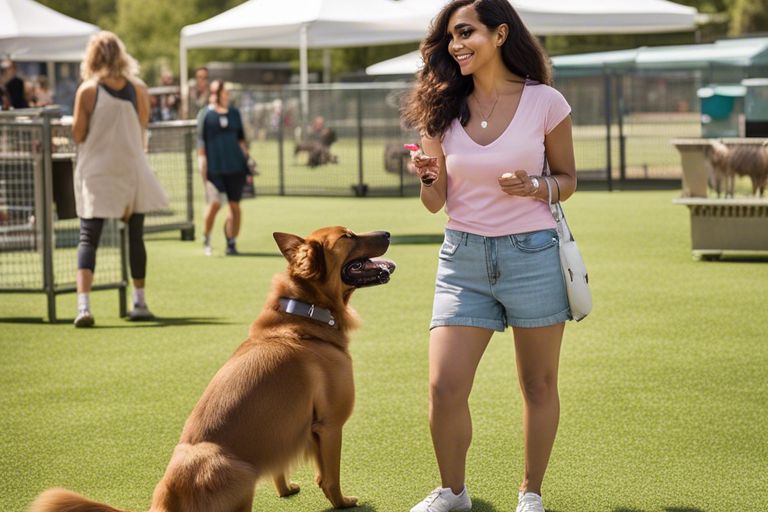As a dog behavior specialist, I have encountered numerous small dog breeds that struggle with socialization. Socialization is a critical aspect of a dog’s development, as it helps them become well-adjusted and confident in various social situations. However, socializing a small dog comes with its own set of challenges, and it requires a carefully thought out approach. In this blog post, I will discuss the best methods for small dog socialization, including the potential risks and benefits of different approaches. Small dogs may face unique dangers in socialization, but with the right strategies and techniques, you can help your small dog become a well-socialized and happy companion.
Key Takeaways:
- Early and consistent exposure is essential: Small dogs should be exposed to various social situations and interactions from a young age to build confidence and social skills.
- Positive reinforcement and patience are crucial: Reward small dogs for good behavior during socialization and be patient with their progress. This will help create positive associations with social interactions.
- Gradual introductions and supervised interactions: Introduce small dogs to new people, animals, and environments gradually and always supervise their interactions to ensure safety and comfort.
Understanding Small Dog Behavior
Now, let’s delve into the behavior of small dogs. Understanding their behavior is crucial for successful socialization. Small dogs often exhibit unique characteristics that differ from larger breeds, and it’s important to recognize and address these differences to ensure successful socialization.
Common Characteristics
Small dogs often have a Napoleon complex, where they are unaware of their small size and may display aggressive behavior to compensate. This can manifest as barking, snapping, or other forms of aggression when they feel threatened or intimidated. Additionally, small dogs are more prone to separation anxiety, which can lead to destructive behavior when left alone. Understanding these common characteristics is essential in effectively socializing small dogs.
Socialization Windows
Small dogs have a critical socialization period during puppyhood, typically between 3 to 14 weeks of age. During this time, it’s crucial to expose them to a variety of experiences, people, and other animals to ensure they grow up to be well-adjusted and confident adults. Missing this socialization window can lead to fear, anxiety, and aggression towards unfamiliar people and animals later in life. It’s important to prioritize socialization during this critical period to lay a solid foundation for their future behavior.
In small dog behavior, it’s important to acknowledge that their small stature does not diminish the intensity of their emotions and instincts. It is vital to approach their socialization with caution and understanding. One of the most critical aspects of small dog behavior is recognizing their unique characteristics and ensuring they are properly socialized within the critical window of opportunity.
Best Methods for Socialization
Obviously, socialization is crucial for small dogs to ensure they grow up to be well-adjusted and confident companions. There are several effective methods for socializing small dogs, including puppy classes, play dates, and dog parks.
Puppy Classes
Attending puppy classes is a great way to socialize your small dog. These classes provide a controlled environment for puppies to interact with each other and learn important social skills. Additionally, they offer valuable training and guidance for both you and your puppy. It is important to choose a reputable and positive reinforcement-based puppy class to ensure a safe and enjoyable experience for your dog.
Play Dates and Dog Parks
Scheduling play dates with well-socialized dogs or visiting dog parks can also help your small dog develop social skills. However, it is essential to carefully supervise these interactions to prevent any negative experiences that could undermine your dog’s confidence. Introduce your small dog to new experiences gradually and always be prepared to remove them from a situation if they seem uncomfortable. Additionally, ensure that the playmates at the dog parks are up to date with vaccinations to minimize the risk of disease transmission.
Socialization Tips and Techniques
Not all dogs are naturally social creatures, especially when it comes to small breeds. To help your small dog become more socialized, there are a few key tips and techniques that can make a big difference in their behavior and comfort around other dogs and people. Here are some important factors to consider when socializing your small dog:
- Positive reinforcement is essential for small dog socialization
- Exposing your small dog to new people and new dogs
- Introducing new environments and experiences
- Managing overstimulation in small dogs
Knowing how to use these techniques effectively can greatly improve your small dog’s socialization and overall behavior.
Positive Reinforcement
Positive reinforcement is a crucial aspect of small dog socialization. When your small dog interacts positively with other dogs or people, you should reward them with treats, toys, or verbal praise. This will help them associate social interactions with positive experiences, encouraging them to be more open and receptive to new experiences and encounters. Consistency is key, so make sure to reward your small dog every time they exhibit the desired social behavior.
Managing Overstimulation
Small dogs can easily become overstimulated in new or busy environments. It’s important to monitor your small dog’s body language and behavior to ensure they are not becoming overwhelmed or anxious. If you notice signs of overstimulation, such as shaking, panting, or hiding, it’s crucial to remove them from the situation and give them time to calm down in a quiet, familiar environment. Gradually exposing your small dog to new experiences and carefully managing their stimulation levels will help them build confidence and comfort in social settings.

Challenges in Small Dog Socialization
Despite the many benefits of socializing your small dog, there are several challenges that can arise during the process. Understanding these challenges is crucial in order to address them effectively and ensure a positive experience for your pet.
Fear and Anxiety
One of the most common challenges in small dog socialization is fear and anxiety. Small dogs may be more prone to feeling overwhelmed in unfamiliar environments or around new people and animals. This can lead to behavior issues such as excessive barking, hiding, or even aggression. It’s important to introduce your small dog to new experiences gradually, and to provide plenty of positive reinforcement and support to help them feel at ease.
Aggression and Bullying
Another challenge in socializing small dogs is the risk of aggression and bullying from other dogs. Small dogs may be perceived as easy targets by larger or more assertive dogs, leading to potentially dangerous encounters. It’s important to carefully monitor your small dog’s interactions with other dogs and to step in if you sense any signs of aggression or discomfort. Additionally, teaching your small dog basic obedience commands can help to prevent potential conflicts and keep them safe in social settings.
Monitoring Progress and Adjusting Strategies
Unlike larger dogs, small dogs may take longer to adjust to socialization efforts. It’s crucial to continuously evaluate and adjust your socialization strategies to ensure your small dog is making progress. One of the best ways to monitor progress is to keep a journal of your socialization experiences. Note any positive or negative reactions your dog has to different situations and adjust your approach accordingly.
Recognizing Milestones
As you guide your small dog through the socialization process, it’s essential to celebrate the milestones. Whether it’s the first successful interaction with another dog or a fear conquered, acknowledging these achievements reinforces positive behavior. By recognizing these milestones, you can also gauge your dog’s progress and adjust your socialization strategies accordingly.
When to Seek Professional Help
There may come a time in your small dog’s socialization journey when you encounter a roadblock that you can’t overcome on your own. Don’t hesitate to seek professional help if you feel overwhelmed or if your dog’s progress plateaus. A professional dog trainer or behaviorist can provide valuable insight and personalized strategies to address your small dog’s socialization challenges.
Conclusion
With this in mind, it is clear that the best methods for small dog socialization involve gradual exposure to different environments, people, and other animals. It is important to start socialization early and to use positive reinforcement techniques to encourage confident and well-adjusted behavior. Additionally, enrolling your small dog in puppy socialization classes and arranging playdates with other well-behaved dogs can also be effective methods for promoting socialization. Ultimately, by taking a proactive approach and being consistent in your efforts, you can help your small dog develop the social skills necessary to thrive in various social settings.
Small Dog Socialization FAQ
Q: What are the best methods for small dog socialization?
A: The best methods for small dog socialization include controlled introductions to other dogs, positive reinforcement training, and exposing your dog to a variety of environments and experiences. It’s important to start socialization at a young age and to always supervise interactions to ensure safety.
Q: Why is small dog socialization important?
A: Small dog socialization is important for their overall well-being and behavior. Proper socialization helps prevent fear, anxiety, and aggression in unfamiliar situations, and it also teaches them how to communicate and interact with other dogs and people. This can lead to a safer and more enjoyable experience for both the dog and their owner.
Q: What are the signs that my small dog is properly socialized?
A: Signs that your small dog is properly socialized include being confident and relaxed around other dogs and people, showing curiosity about new environments, and being able to handle different situations without fear or aggression. A well-socialized small dog should also understand and respond to basic commands and have good manners when interacting with others.

